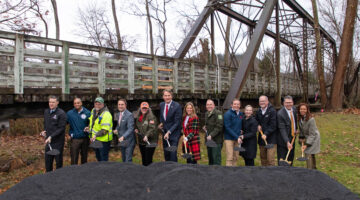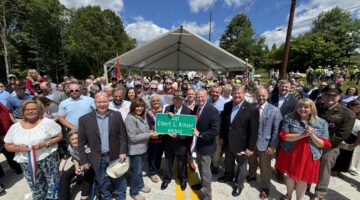A design-build team lead by Kiewit Infrastructure West Company (Kiewit) was recently selected to deliver a new biosolids solar drying facility that will be a model of sustainability.
The project, for the Pima County Regional Wastewater Reclamation Department at its Tres Rios Wastewater Reclamation Facility (WRF) in Tucson, Arizona, will not only reduce the volume of biosolids but produce higher quality Class A biosolids. It will have the capacity to treat at least 180 wet tons per day of Class B biosolids and transform it into the equivalent 45 dry tons of Class A variety. Class A biosolids are among the highest quality and sought after as compost and fertilizer with no restrictions.
The project will feature several aspects that drive efficiency and sustainability, including:
- Using 100% renewable resources – a combination of thermal and solar technologies – that maximize waste heat recovery.
- Using less energy than current operations, reducing the overall Tres Rios WRF carbon footprint and providing lifecycle savings through lower operational costs.
- Fully automated, integrated facility that operates 24 hours a day, 365 days a year.
- Fewer truck hauling trips resulting from a 75% reduction target of biosolids volume.
Pima County’s ambition of providing environmental stewardship and resource recovery, including high quality water for reuse, renewable natural gas, and exceptional quality biosolids for agricultural benefit is exemplified in this project partnership. The utility has twice been honored in the Utility of the Future Recognition Program, which honors forward-thinking water resource recovery and recycling facilities.
The Class A biosolids solar drying project is expected to be complete at the end of 2024.
In 2022, the ENR Top 400 Contractors Sourcebook ranked Kiewit No. 2 in Sewage and Solid Waste and No. 3 in Wastewater Treatment Plants. Over the past 70-plus years, Kiewit has completed more than 1500 water and wastewater projects throughout North America.


